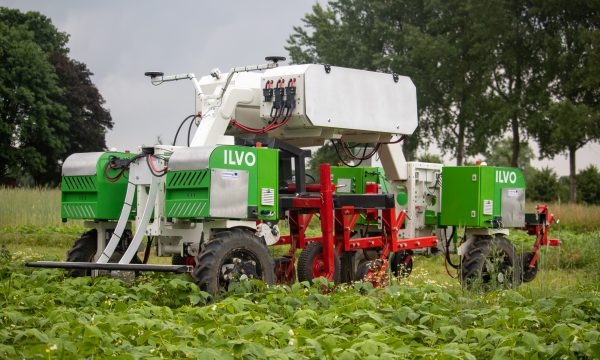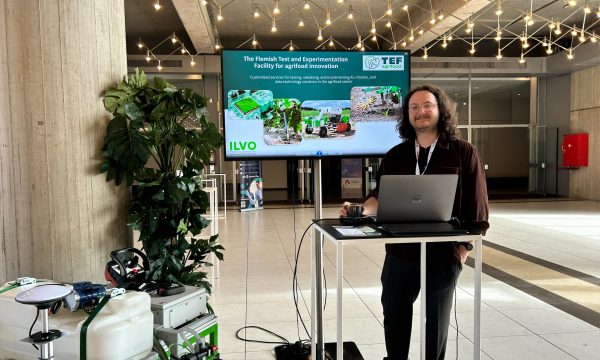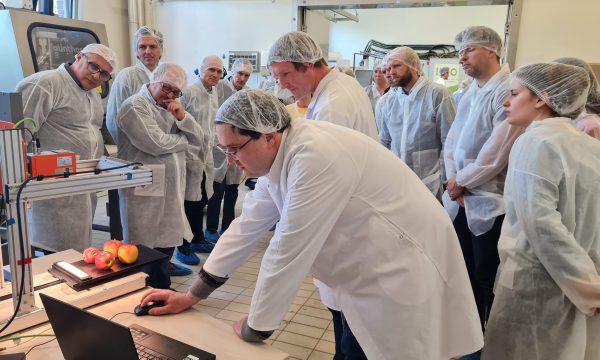In de media A day in the life of.... Axel Willekens
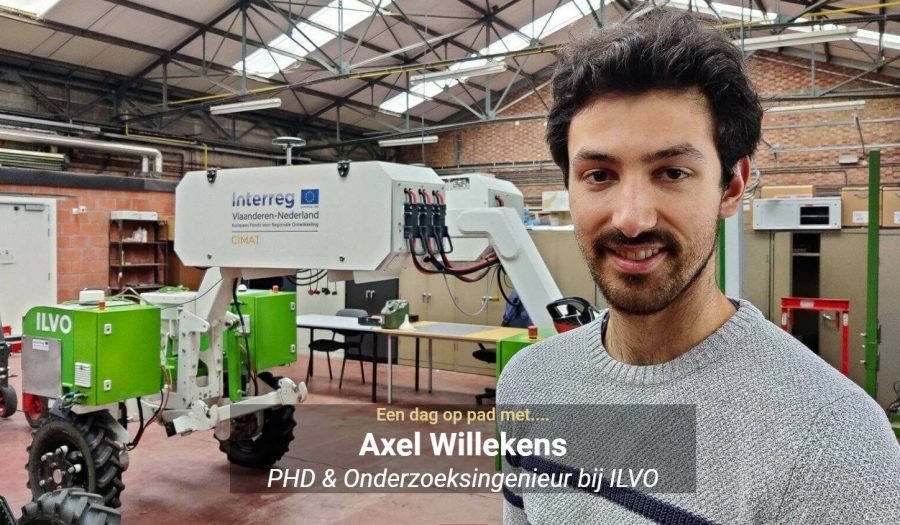
For this "A day in the life of..." we can't present any impressively large equipment in the field or shed. Instead, impressive technology is being developed and tested as prototypes and research projects by ILVO research engineer Axel Willekens, who is looking into the application of robots in the broad agricultural sector together with his colleagues. We went to Merelbeke to spend the day with him.
For Axel, a day begins around 8:30 a.m. when he starts up his computer with a view on the experimental field. The rest of the day depends on the season. During the growing season, prototypes are mainly tested and improved; the winter period serves to examine newly acquired ideas and seek funding to test them in research projects. Such projects provide an opportunity to accelerate the development of new technologies so that they can be used by machine manufacturers in the future.
"As a research engineer, I investigate what robotics and AI can do for precision agriculture," Axel clarifies. "I believe this technological development can help prepare agriculture for the future. Because of challenging and variable conditions, including changing weather, seasons and complex soil life, the entry of robotics into agriculture has been slower than in industry. ILVO is trying to close that gap by building its own prototypes in the studio and testing and demonstrating them in the field."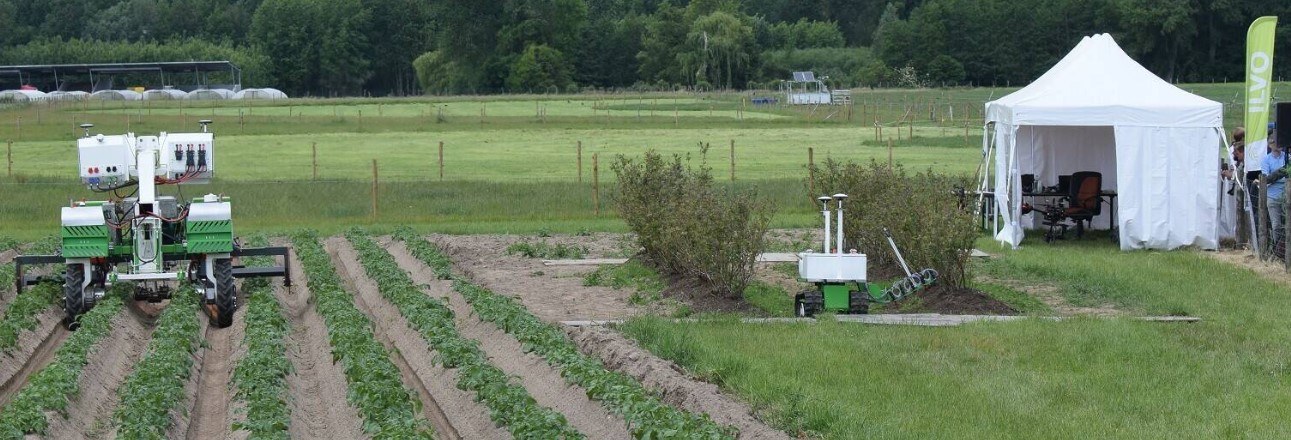
As in the other branches of agriculture, Axel is dependent on a number of external factors. Changing delivery deadlines or changing weather conditions affect the working day and require quick reactions. No 2 days are the same! It sometimes happens that the planning is thrown into disarray. For example, an unannounced rain shower or just too dry conditions affect the test planning of a new prototype. In addition, Axel and his colleagues develop these high-tech prototypes themselves, which in itself poses the necessary challenges.
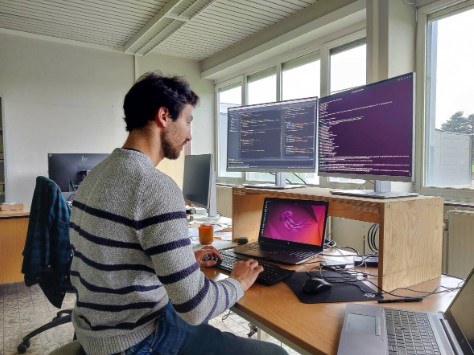
The colleagues of the ILVO 'Living Lab Agri-food Technology' start from ideas, questions or concepts that live in the sector. Together with potential end users (often farmers) and technology companies, they then investigate what requirements such a new concept must meet.
The architecture of the system is determined and the components are dimensioned. Then they develop a test setup or prototype, which can be immediately demonstrated on their fields with the relevant end users (farmers).Bringing the research to fruition requires a team of several people, one of whom is Axel. "Research into robotics is very multidisciplinary and cannot succeed without a diverse and strong team with extensive knowledge of mechanization, automation, software ánd agriculture! Working with them often makes my day diverse."
Axel specialized in software development for controlling the various robotic platforms or a new type of sensor. So he can often be found behind the PC. "In addition, I also enjoy jumping into the workshop to help colleagues with mechanical or electrical work." When the robots go into the field, Axel regularly joins them. "This way we know very quickly what goes well, but especially where the pain points are and therefore where we still have work to do." The development of prototypes involves a lot of consultation. Here new ideas are exchanged or the progress of the various projects is discussed.
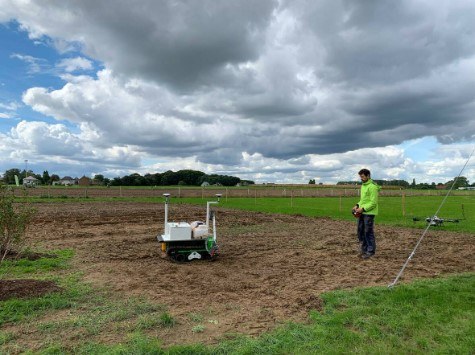
"As a research engineer, I have an intensely varied job. One moment I'm writing new software, the next I'm in the field next to the robot to check the adjustments made. ILVO also has an extensive network in the agriculture and technology sector, which gives me the opportunity to learn every day. In addition, developing new prototypes for the primary sector still gives me great satisfaction every day. So you can safely say that I am very happy in my job!"
A normal working day ends around 6 p.m., but what is true in the other branches of agriculture is also true in the research field. A day may already be extended due to circumstances. A rainstorm can throw a spanner in the works and end a test day prematurely, beautiful weather conditions can make a day last just a little longer. After all, there is little difference between working with the familiar machines in the field and working with high-tech robots in research!